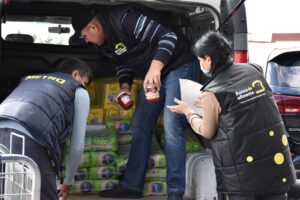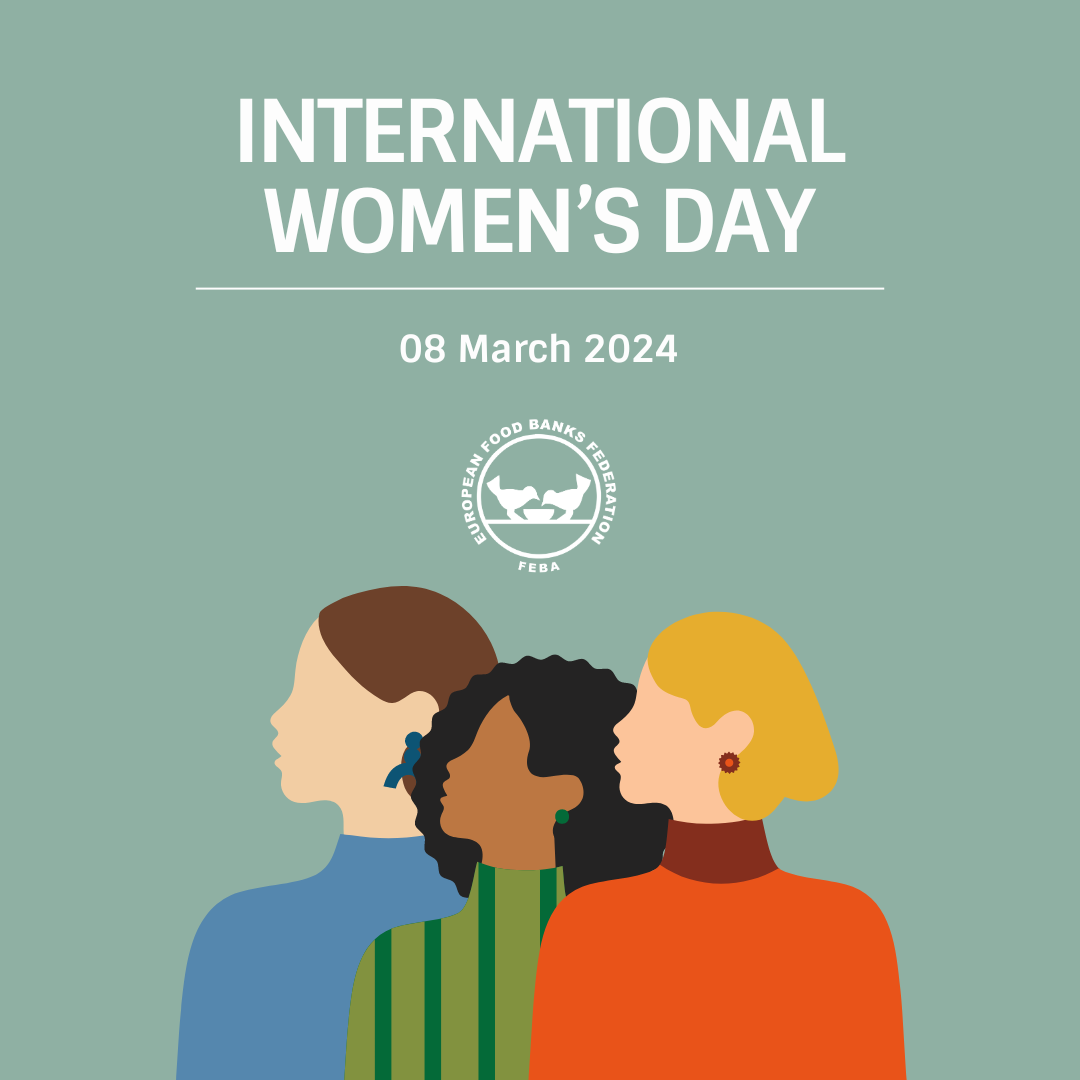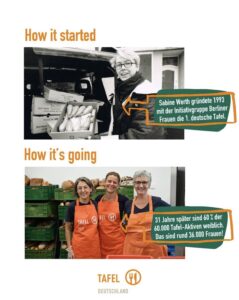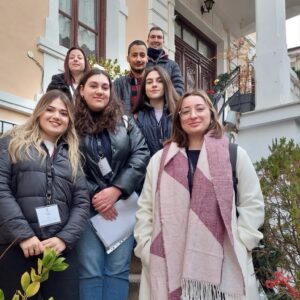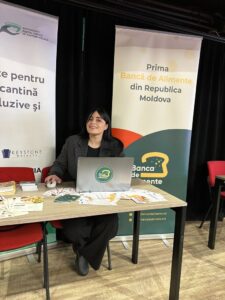On 8 March 2024 FEBA celebrates International Women’s Day, by sharing stories from the network.
- Germany: The first Tafel was founded by Sabine Werth in 1993 as an initiative of the ‘Berliner Women’s Group’. Fast forward to today, almost 31 years later, 60% out of the total 60.000 volunteers are female. That’s around 36.000 women! (Photos credits: @tafeldeutschland and @berlinertafel (above), @reinerpfisterer (below))
- Greece: From the Ladies Union of Drama, from our Food Bank in Drama (North-East Greece), which is mostly run by women, wanted to share a story of someone who sought help with the Ladies Union, coming from a difficult background. Suffering with difficulties in the families, education and mental health, the House of Open Hospitality accepted this young girl in, providing her with legal, financial, psychological, educational, medical and food support. In the end she received a scholarship for a private collage and reunited with her mother in a new home. Today the girl strives for the best and hopes through her profession to provide significant social work, as a promise to the women who helped and supported her from the beginning. (Photos credits: @Ladies Union of Drama)
- Moldova: The Food Bank in Moldova wanted to share the story of Mariana Roman, the logistics manager of the Food Bank since 2020. Her 4 years at the Bank coincided with the pandemic period, followed by the refugee crisis in the context of the war in Ukraine. For Mariana and the Bank’s team, those disruptions to everyday life required a lot of effort. Sometimes with overtime work, sometimes with tears in her eyes from the stories of the beneficiaries she met. She experienced these stages at the Food Bank with much optimism and gratefully recounts situations where she has worked seemingly “under the pressure of crisis” to help. “I am most moved by the visits to identify new beneficiary services, especially children’s homes. There we find children who lack the love and warmth of family. On top of that, they can’t afford a warm meal, fruits and sweets, apparently something natural and essential for any human being. After each visit, I leave with a lump in my throat that I feel for days. I hope that what I do will somehow change their situation for the better,” she says. “And we’re succeeding, I think,” she says with a smile.A typical day at work for Mariana means lots of phone calls, lots of food and lots of people. That requires her to be operational, energetic and, of course, to care about the relationship she’s building. “Over time, many of the Food Bank’s logistical processes have been digitalised; this has made some logistical operations easier,” Mariana tells us. At the time of the interview, she was in the process of managing 4 tons of onions and 15 tons of plums. Each kilogram, according to her, was a great gift, and it was going to feed several hundred people in the Food Bank’s 60 or so beneficiary services. Asking her what keeps her going when she can’t, what motivates her and what gives her energy. She smiles: “I think it’s the pictures I get from the services where the beneficiaries are enjoying the products donated by the Food Bank. Some of them are on these people’s menus for the first time. Likewise, when at the end of the month we calculate the tons recovered, the new donors, the services assisted and the number of meals prepared from these foods, all of this gives me joy and a sincere sense of pride and gratitude to be part of this chain of kindness. What gives me momentum is that these numbers are growing month by month, year by year, so it’s precious the mission I’ve taken on.” Today the Food Bank of Moldova has 15 employees, 8 of them women. “Even the Bank itself is a female word,” says the Bank’s President, Igor Belei, smiling. (Photos credits: @Banca de Alimente Moldova)
